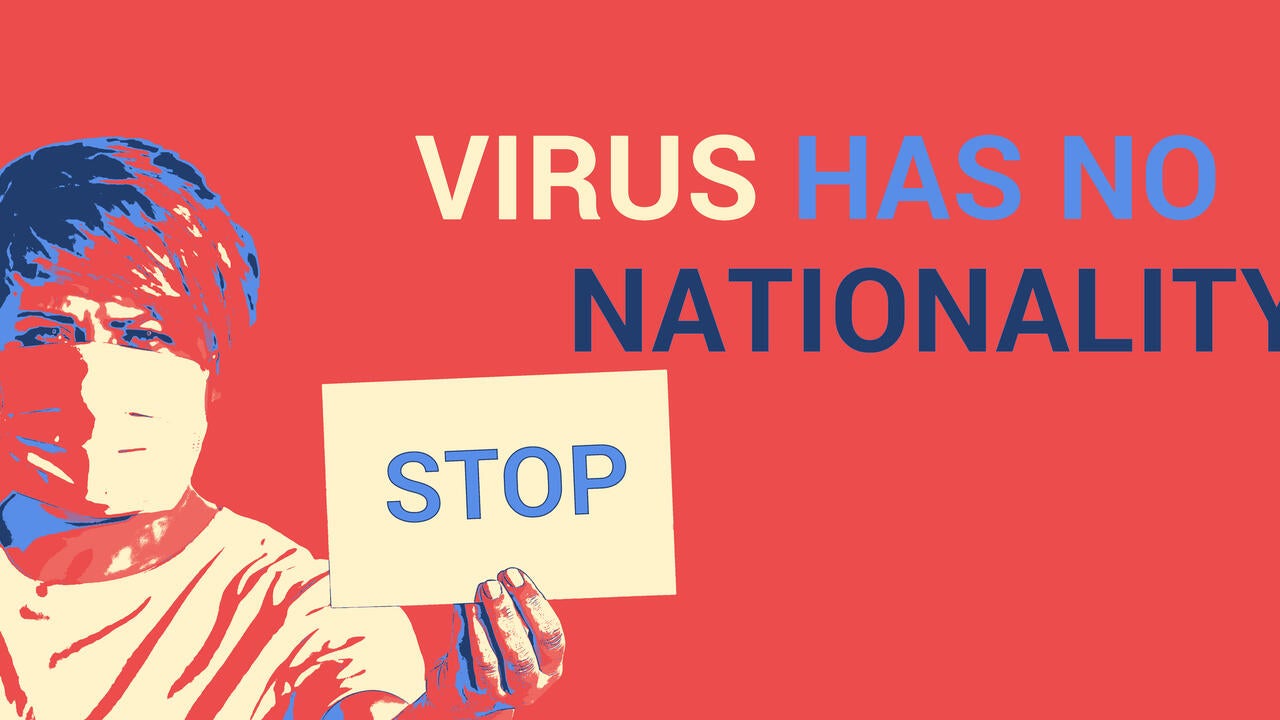
Q and A with the experts: How the way we label a health crisis can fuel racism
Labels for the COVID-19 virus and its variants have incited xenophobia and other harms throughout the pandemic

Labels for the COVID-19 virus and its variants have incited xenophobia and other harms throughout the pandemic
By Media RelationsLabels for the virus and its variants have incited xenophobia and other harms throughout the pandemic. Psychology professor Hilary Bergsieker, the lead author of an upcoming new study on the issue, offers insights into preventing this naming-and-blaming problem.
How did public discourse during the early days of the pandemic lead to expressions of hostility, xenophobia, and stigma?
Early pandemic media coverage focused on mounting death tolls and tracing the source or path of the virus abroad, fostering a climate of fear surrounding a “foreign” threat. As in prior pandemics, some responded by scapegoating “outsiders” – Chinese and Asian people. After Trump first tweeted “Chinese virus” on March 16, 2020, this term took off on Twitter and conservative media. #ChineseVirus tweets were significantly more likely to contain negative sentiments and racist hashtags, such as #YellowManFever, as well as more disgust and hostility. With anti-Asian attacks on the rise, limiting stigmatizing language that has the potential to incite violence is an urgent priority.
What are other examples of word choices shaping public attitudes?
Prior research shows language shapes attitudes. For example, people report more support for “assistance to the poor” vs. “welfare,” “gay marriage” vs. “same-sex marriage,” “assisted dying” vs. “euthanasia.” Research demonstrating more positive attitudes toward “noncitizens” vs. “illegal aliens” recently led the U.S. government to revise its terminology in official policy and documents to avoid stigmatizing that people group. Using language that is respectful, clear, informative, and non-stigmatizing can help avoid a blame game, instead fostering a focus on resolving issues and decisions at hand.
What is the solution for avoiding negative or racist labels in a public health crisis?
One essential step is providing functional, group-neutral alternatives to problematic ethnic or geographic labels. Soon after the WHO proposed the term “COVID-19” describing the virus type and timing, most mainstream media and institutions (including UWaterloo) adopted this term consistently. Unfortunately, we still lack fluent, functional names for variants of concern: Terms such as “B.1.1.7” or “P.1” — though scientifically precise — are simply harder for non-experts to recall and repeat than (problematic) labels like the “British” or “Brazilian” variant. Providing even an arbitrary set of standardized variant labels, like those for hurricanes, could reduce the odds of scapegoating individuals from these regions.

Read more
To meet our AI ambitions, we’ll need to lean upon Canada’s unique strengths

Read more
New research from the University of Waterloo centres Haudenosaunee-led efforts in the repatriation and reclamation of cultural and intellectual property

Read more
Researchers awarded funding to investigate ecology, climate change, repatriation, health and well-being through cultural and historical lens
The University of Waterloo acknowledges that much of our work takes place on the traditional territory of the Neutral, Anishinaabeg, and Haudenosaunee peoples. Our main campus is situated on the Haldimand Tract, the land granted to the Six Nations that includes six miles on each side of the Grand River. Our active work toward reconciliation takes place across our campuses through research, learning, teaching, and community building, and is co-ordinated within the Office of Indigenous Relations.